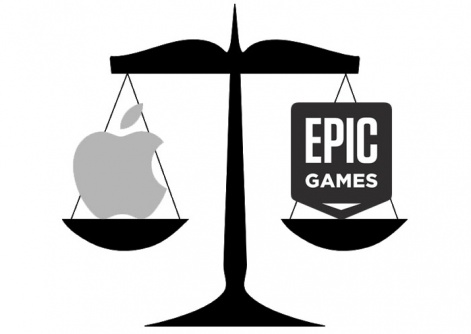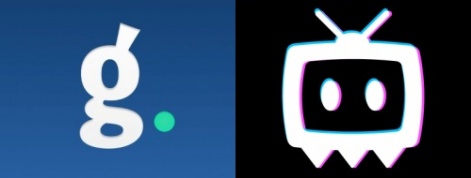The mobile games industry had a lot to celebrate during 2021 – on track to surpass over $120 billion, growing 20 per cent over 2020. It is also an industry that has never stood still for long, and 2021 was no exception. PocketGamer.biz looks back at the most impactful news and developments of the year.
IDFA and Ad Tracking Transparency
In April 2021, the sky fell. When Apple effectively removed IDFA with iOS 14, in an effort to enhance user privacy, it did so without widespread consultation from the mobile games industry and, in a rare breakaway from the solidarity between the tech giants, attracted public criticism from Facebook. It’s not hard to see how this was the most frequent response for the biggest news of the year in the PocketGamer.biz 2021 in Review Q&As.
Except the sky didn’t fall. While there have been early impacts including, according to Tenjin’s Chris Farm, more obstacles for indie and mid-size publishers to grow their games and advertisers starting to spend more on Android than iOS, there have been no widespread layoffs or studios closing. Through a variety of adaptive measures – aggregated data, predictive analytics – the mobile games industry picked itself up.
Ultimately, the ramifications of the IDFA will continue to reverberate in 2022. Zynga’s Bernard Kim told PocketGamer.biz: “There’s a tremendous amount of uncertainty about what’s going to happen with less player attribution.” Although Kim was confident that specific genres will be better placed to weather them, stating: “the mass audiences for hypercasual games will be less impacted by the changes arising from IDFA.”
Epic vs Apple

In September 2021, the sky fell. This time for Apple and Epic, which both faced the harsh consequences of the influential Epic vs. Apple lawsuit.
The suit concluded that Apple was not unfairly monopolising the mobile app environment with iOS and its in-app purchasing system, and Epic has breached its developer contract by redirecting Fortnite players through an alternative payment system.
Apple also received an injunction to remove its anti-steering rules that prevent developers from implementing or directing players to other forms of IAPs outside of the App Store, although Apple closed the year with a postponement of its removal until the potentially years-long appeals process concludes.
Throughout the year, PG.biz published 12 news stories reporting on the ebb and flow of requests, rulings, victories, and responses. This is unlikely to recede. With both Apple and Epic appealing the September ruling, the true consequences are far from known.
The continuation of M&As

In December alone, Embracer announced its intention to acquire Asmodee, Aniplex revealed its forthcoming acquisition of Delightworks’ games division, Fragbite acquired outstanding shares in Lucky Kat, and Nat Games and Nexon GT merged into a rebranded Nexon Games. This list is restricted to December because, were we to present the year’s roster of mergers and acquisitions (M&A), this segment would be cartoonishly lengthy.
2020 saw a frankly astounding influx of mergers and acquisitions. Astounding, but not surprising, and 2021 was no different. The COVID-19 pandemic not only saw a significant rise in mobile gaming, but the creation of an overheated investment environment.
For subscription services, it is an effective means of securing content, provides financial and institutional support for small studios looking to accelerate growth, and large gaming companies have performed extraordinarily well in 2021.
Nor are we likely to see a decline of M&As. Jam City’s Josh Yguado told PocketGamer.biz in November: “We believe that we are nowhere near peak mobile gaming. The industry continues to be the fastest growing entertainment sector in the world. All metrics continue to showcase growth, and continued growth is supported by heavy investments and acquisitions across the sector.”
Triple-A and hypercasual
PUBG Mobile, Call of Duty, and Genshin Impact – a common favourite among industry experts in our 2021 in Review series – and overs have brought the triple-A experience to mobile, and been aptly rewarded. PUBG Mobile and Genshin Impact are among the year’s highest-grossing titles, generating $2.8 billion and $2.4 billion respectively.
But the real winners are hypercasual games, which were the top-performing mobile gaming genre in 2021. In Q3 alone, of the 14.3 billion mobile games downloaded, 3.6 billion (around 33 per cent) were hypercasual, and are some of the most successful examples of monetisation, engagement, and retention. According to App Annie, the most successful genres within the category are runner action and 4X march-battle strategy.
App Annie wrote on PocketGamer.biz: “The design and development process for hypercasual titles varies greatly from the more ‘traditional’ approaches found in the PC and console markets, with very short design and development cycles, combined with an incredibly tight focus upon testing, metrics, and iteration required to produce a game with low cost-per install and high Lifetime Value.”

But, of course, there was so much more to 2021. Where’re NFTs? Play-to-earn? The metaverse? Well, these stories don’t stop in the new year. Keep an eye out for PocketGamer.biz’s 2022 predictions next week.

